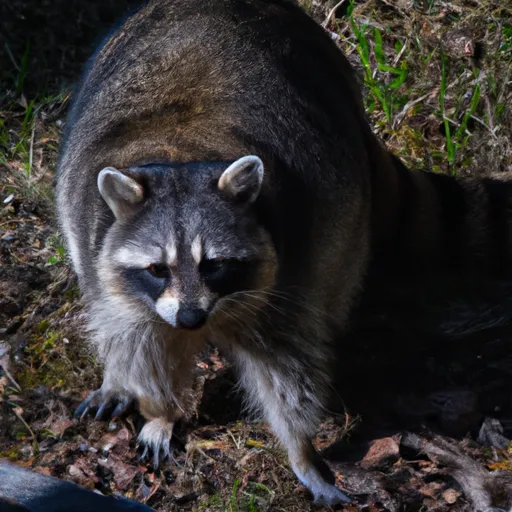What Kills Chickens But Doesn’t Eat Them? The Truth About Raccoons and Other Predators
Chicken predators are a constant threat to backyard poultry farmers.
While many people assume that foxes, coyotes, or even birds of prey are the most common culprits when it comes to chicken losses, raccoons are actually responsible for the majority of attacks on domestic fowl.
These clever creatures have adapted well to urban environments and are notorious for their ability to open latches, climb trees and break into enclosures in search of an easy meal.
But what about those cases where a chicken is found dead with no signs of injury or evidence of attack?
In these instances, there may be another predator at work – one that doesn’t eat its victims but instead kills them for sport.
Let’s take a closer look at some of the most common chicken predators and how you can protect your flock from harm.
The Most Common Chicken Predator: Raccoons
As we mentioned earlier, raccoons are by far the most common predator when it comes to chicken losses.
They are attracted to chicken feed and will often try to break into henhouses or pens in order to steal food.
Raccoons are also known for their dexterity and intelligence, which makes them particularly difficult to deter.
Some common tactics for keeping raccoons away include installing motion-activated lights, using loud noises (such as banging pots and pans) to scare them off, and even setting up traps to catch and relocate them.
What Kills Chickens But Doesn’t Eat Them?
While raccoons are certainly a major concern when it comes to chicken predation, they aren’t always the only culprit. In some cases, other animals may kill chickens without eating them.
See also Benefits of Using Oyster Shells for Chickens
For example, owls and hawks may swoop down and grab a chicken, causing fatal injuries but leaving behind little evidence of their presence.

Snakes and other predators may also kill chickens but leave the body intact.
How to Protect Your Chickens from Predators
There are several steps you can take to protect your chickens from predators.
First and foremost, make sure that your henhouse or pen is securely locked and protected.
Use strong wire mesh to prevent predators from breaking in, and consider adding reinforcements such as hardware cloth or electric fencing.
You should also keep your chickens in a covered area at night, as this will help deter nocturnal predators like raccoons and owls.
Finally, consider investing in guard dogs or other livestock protection animals, which can help alert you to potential threats and ward off predators before they cause any damage.
Final Tips
Protecting your chickens from predators requires vigilance and effort, but it’s an important part of being a responsible poultry farmer.
By taking proactive measures to safeguard your flock and understanding the behaviors of common predators, you can minimize losses and ensure that your chickens remain safe and healthy.
And remember, if you suspect that something has been killing your chickens but not eating them, don’t hesitate to call in professional assistance to identify the culprit and develop a plan for dealing with the problem.
